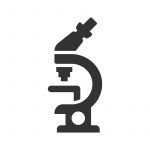Top 5 Thyroid Myths from a Functional Medicine Perspective
Functional Medicine provider, Dr. Blake Butler, DC, covers what is often misunderstood about thyroid health
The thyroid gland plays an essential role in allowing us to function. Every single cell is impacted by our thyroid hormones and approximately 12% of the US population will develop a thyroid related condition (1). Symptoms associated with a thyroid condition include fatigue, weight fluctuation, hair loss, anxiety, depression, and much more. These are broad, and common, symptoms. Therefore, confusion regarding how this butterfly shaped gland impacts our health and function runs rampant.
In the era of the Internet, we do not lack information. However, with access to so much information it can be difficult to discern what is reliable. Let’s take a closer look, using a Functional Medicine lens, to cut through common thyroid myths and misconceptions:
 Myth #1: TSH falls within the lab reference range. Therefore, thyroid function is normal.
Myth #1: TSH falls within the lab reference range. Therefore, thyroid function is normal.
You may experience all the typical thyroid symptoms but continue to have doctors proclaim your thyroid labs are “normal”. In a sense, this is true if your TSH falls between 0.3-5.0 mIU/L. However, recent evidence suggests this range should be between 0.45-2.5 mIU/L (2). In this case, any finding above 2.5 or below 0.45 mIU/L could be contributing to thyroid related changes in how we function. Just because a blood finding does not demonstrate pathology, it doesn’t mean that function is normal.
 Myth #2: Thyroid dysfunction is easy to diagnose.
Myth #2: Thyroid dysfunction is easy to diagnose.
There are at least 24 documented patterns of thyroid dysfunction and it requires a broad knowledge of how thyroid hormones interact with the gut, brain, sex hormones, and adrenal glands to understand how to support optimal function. Therefore, looking at TSH alone and disregarding the “whole” person is an incomplete way of assessing thyroid function.
 Myth #3: Thyroid dysfunction occurs only in older women.
Myth #3: Thyroid dysfunction occurs only in older women.
Although it is common to see hormone fluctuations as women age, they are not the only ones susceptible to thyroid dysfunction. People of all ages and genders can be impacted.
 Myth #4: Iodine supplementation will improve your thyroid health.
Myth #4: Iodine supplementation will improve your thyroid health.
Iodine has a negative impact for most people with Hypothyroidism (low thyroid hormone output). This is because approximately 90% of people with low thyroid hormones have an autoimmune condition called Hashimoto’s (3). Iodine has the potential to contribute to, and worsen, the destruction of thyroid gland in those who have Hashimoto’s.
 Myth #5: Everyone with a thyroid condition must go on a gluten-free diet.
Myth #5: Everyone with a thyroid condition must go on a gluten-free diet.
While this phrase isn’t entirely true, it is close. Many people with thyroid conditions demonstrate a gluten (found in wheat, barley, and rye) sensitivity. The gluten-free diet is becoming exceedingly more popular as we understand the potential negative impacts on our health associated with gluten consumption. However, not everyone with a thyroid condition needs to maintain a gluten free diet. It is important to customize a food plan based on individualized testing. It doesn’t hurt to attempt a trial elimination of gluten, however. You may find that you feel much better without this pesky protein.
Functional Medicine Management for Thyroid Health
Still confused? That’s okay. Functional medicine providers specialize in addressing the root cause of thyroid dysfunction. We are here to partner with you on your health journey. Complete the form below to get started.
About Dr. Blake Butler, DC
Dr. Blake Butler is a Functional Medicine Telemedicine provider at Aligned Modern Health and currently serves patients in Florida, Colorado, and Illinois. Graduating with honors from Logan College of Chiropractic, Dr. Butler has extensive postgraduate training in functional medicine, blood chemistry interpretation, brain chemistry, thyroid function, and functional endocrinology. He specializes in regulating blood sugar, thyroid dysfunction, GI imbalances, and adrenal dysfunction. Dr. Butler places a strong emphasis on patient education and believes that diet and lifestyle play an important role in achieving optimal health and promoting chronic disease prevention.
References:
-
https://www.thyroid.org/media-main/press-room/
-
https://academic.oup.com/jcem/article/98/9/3584/2833082
-
Amino N. Autoimmunity and hypothyroidism. Baillieres Clin Endocrinol Metab. 1988 Aug;2(3):591-617. doi: 10.1016/s0950-351x(88)80055-7. PMID: 3066320.











